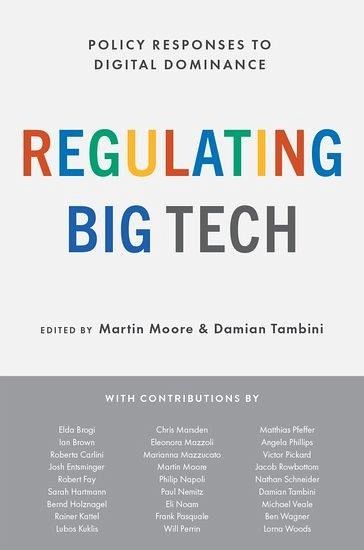
Regulating Big Tech
Policy Responses to Digital Dominance
Herausgeber: Tambini, Damian
Versandkostenfrei!
Versandfertig in 1-2 Wochen
38,99 €
inkl. MwSt.
Weitere Ausgaben:

PAYBACK Punkte
19 °P sammeln!
Regulating Big Tech explores cutting-edge policy innovations that tackle the dominance of Google, Apple, Facebook, Amazon, and Microsoft and the interlocking challenges of contemporary tech regulation.













